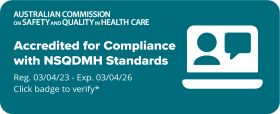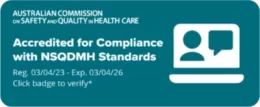Accessibility Tools
- Content scaling 100%
- Font size 100%
- Line height 100%
- Letter spacing 100%
The SANE Blog

5 tips for good perinatal mental health
Having a baby. Arguably one of the largest lifestyle changes an adult can experience.
To help new and would be-parents we spoke to Jenni Richardson, the National Helpline Manager with Perinatal Anxiety and Depression Australia.
Her tips are . . .
1. Practise self-compassion
While you can plan for having a baby, there’s a lot that’s out of your control.
When your expectations don’t match reality, it’s really common to feel a deep sense of loss and even failure — not the greatest starting point for a 24/7 job caring for a totally dependent little person!
Be gentle with yourself and allow you and your baby time to get to know each other.
- Have one or two trusted sources of information — a GP, a child health nurse, a supportive friend or family member. A good place to start online is Raising Children
- Resist media representations of parenting, which can be unrealistic
- Try not to be swamped by parenting information. Trust that you are learning how to best look after your baby, and that this takes time
- Hold others’ expectations out at arm’s length — your own experience is more valuable
- Take care of your own health — it’s just as important as your baby’s
- Where possible, make some time for yourself
2. Prioritise sleep
Anyone with a pre-existing mental illness knows how important sleep is for emotional and mental wellbeing.
Maintaining mental health during the early days of parenting relies on getting regular sleep. This might mean enlisting help with household chores or letting them go, so you can sleep when baby sleeps.
- Give yourself permission to sleep when your baby sleeps. If you have a toddler, try to make this ‘rest time’ for everyone.
- Try expressing (if you're breastfeeding) and organise for your partner or support person to do overnight feeds while you get a full night sleep
- Get fresh air, sun and gentle exercise each day
- Avoid stimulants before bedtime: caffeine, alcohol, cigarettes, screen time
- Explore things that help you relax before bed: music, herbal tea, a bath or shower
- If you’re unable to sleep when your baby is sleeping (at night), have a conversation with your doctor
3. Know your signs and seek help early
1 in 10 women experience anxiety or depression during pregnancy, and post-natal anxiety and depression are common up to a year after birth. Anxiety and scary thoughts are a sign you need help, not a sign you’re a bad parent.
Pretending that everything is okay when it isn’t prolongs your suffering and robs you of the opportunity to enjoy your baby. Open up to your partner, a trusted friend, family member or health professional. Seeking help early leads to a faster recovery.
If you were on medication prior to having a baby, seek expert medical advice before making any choice to stop. It’s important to weigh up the impact of untreated mental illness against the potential harm from medication.
Well-meaning friends and family might have strong opinions, but a health professional is the best person to discuss this with. Ultimately, your wellbeing is crucial to the wellbeing of your baby.
- Learn the signs of anxiety and depression: PANDA’s perinatal anxiety and depression factsheet
- Find good treatments for anxiety and depression: Jean Hailes' anxiety website, Mum Mood Booster
- Phone PANDA on 1300 726 306 or speak with your GP, midwife or obstetrician if you’re worried
- If you’re struggling with managing your distress afterhours, call Lifeline on 13 11 14 or the Suicide Call Back Service on 1300 659 467
4. Find support for distress (baby’s and yours)
For parents with a history of trauma, the perinatal period can trigger a range of unexpected and overwhelming feelings. Sensations and procedures associated with pregnancy, birth and breastfeeding are all potential triggers, as is a crying baby.
A distressed parent can’t soothe a distressed infant until they soothe themselves. If you’re struggling, it’s important to know that these responses are not your fault — you’re not a bad parent.
What you need is compassionate, trauma-informed support and care. You deserve it and so does your baby.
- Information for adult survivors of childhood trauma: Blue Knot
- Ask your GP for a referral to a counsellor with an expressed interest and training in trauma-informed practice
- If you find it hard to communicate your needs, enlist the help of someone you trust to ensure the antenatal team is aware and can plan appropriately for any health intervention
- Practise mindfulness with Smiling Mind or Mind the Bump
- If you’re feeling overwhelmed, put baby somewhere safe (in cot/pram/crib), walk away and breathe. Count backwards from 20, each breath is one count.
- Become an expert in the things that help to soothe you (music, aromatherapy, shower, sucking ice, walking barefoot, affirmations etc). Develop a distress tolerance kit, filled with these things and keep it on hand.
- Be kind to yourself, every chance you get
5. Share your experiences
Wearing a ‘mask of coping’, or withdrawing from family and friends, are both common in perinatal anxiety and depression. However, in order to access emotional and practical support, we need to connect and engage with trusted friends, family or health professionals.
Sharing experiences via forums, mothers groups, supports groups and playgroups can normalise common challenges and lessen the sense of being alone.
1 in 7 women and 1 in 10 men are thought to experience postnatal depression, and the rates are even higher for anxiety. Everyone around you might seem to be coping, but it’s likely someone in your group is struggling with similar challenges. Maybe you can be the brave one to speak up!
- Join a first-time parents group (speak with your child and family health nurse)
- Join a local playgroup
- Go to story time at your local library
- Find babies’ music programs
- Connect with supportive Facebook groups
- Join the SANE Forums
- Join websites for dads, like How is Dad Going or Dadvice
- Read PANDA’s Stories of Recovery
Related Posts
By accepting you will be accessing a service provided by a third-party external to https://www.sane.org/










